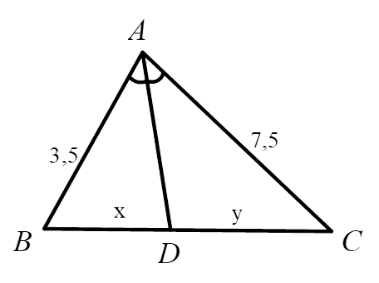Gọi \({x_1}\) là nghiệm của phương trình ${x^3} + 2{\left( {x - 1} \right)^2} - 2\left( {x - 1} \right)\left( {x + 1} \right) = {x^3} + x - 4 - \left( {x - 4} \right)$ và \({x_2}\) là nghiệm của phương trình $x + \dfrac{{2x - 7}}{2} = 5 - \dfrac{{x + 6}}{2} + \dfrac{{3x + 1}}{5}$. Tính \({x_1}.{x_2}\)
Trả lời bởi giáo viên
+ Ta có ${x^3} + 2{\left( {x - 1} \right)^2} - 2\left( {x - 1} \right)\left( {x + 1} \right) = {x^3} + x - 4 - \left( {x - 4} \right)$
\( \Leftrightarrow {x^3} + 2{\left( {x - 1} \right)^2} - 2\left( {x - 1} \right)\left( {x + 1} \right) - {x^3} - x + 4 + \left( {x - 4} \right) = 0\)
\( \Leftrightarrow \left( {{x^3} - {x^3}} \right) + 2\left( {{x^2} - 2x + 1} \right) - 2\left( {{x^2} - 1} \right) - x + 4 + x - 4 = 0\)
\( \Leftrightarrow 2{x^2} - 4x + 2 - 2{x^2} + 2 - x + 4 + x - 4 = 0\)
\( \Leftrightarrow \left( {2{x^2} - 2{x^2}} \right) + \left( { - 4x - x + x} \right) + \left( {2 + 2 + 4 - 4} \right) = 0\)
\(\begin{array}{l} \Leftrightarrow - 4x + 4 = 0\\ \Leftrightarrow - 4x = - 4\\ \Leftrightarrow x = 1\end{array}\)
Suy ra \({x_1} = 1\) .
+ Ta có $x + \dfrac{{2x - 7}}{2} = 5 - \dfrac{{x + 6}}{2} + \dfrac{{3x + 1}}{5}$
\( \Leftrightarrow \dfrac{{10x}}{{10}} + \dfrac{{5\left( {2x - 7} \right)}}{{10}} = \dfrac{{50}}{{10}} - \dfrac{{5\left( {x + 6} \right)}}{{10}} + \dfrac{{2\left( {3x + 1} \right)}}{{10}}\)
\( \Leftrightarrow \dfrac{{10x + 10x - 35}}{{10}} = \dfrac{{50 - 5x - 30 + 6x + 2}}{{10}}\)
\(\begin{array}{l} \Leftrightarrow 20x - 35 = x + 22\\ \Leftrightarrow 20x - x = 22 + 35\\ \Leftrightarrow 19x = 57\\ \Leftrightarrow x = 57:19\\ \Leftrightarrow x = 3\end{array}\)
Suy ra \({x_2} = 3\) .
Nên \({x_1}.{x_2} = 1.3 = 3\) .
Hướng dẫn giải:
Giải các phương trình đã cho để tìm nghiệm \({x_1};\,{x_2}\) .
Sau đó tính tích \({x_1}.{x_2}\) .


